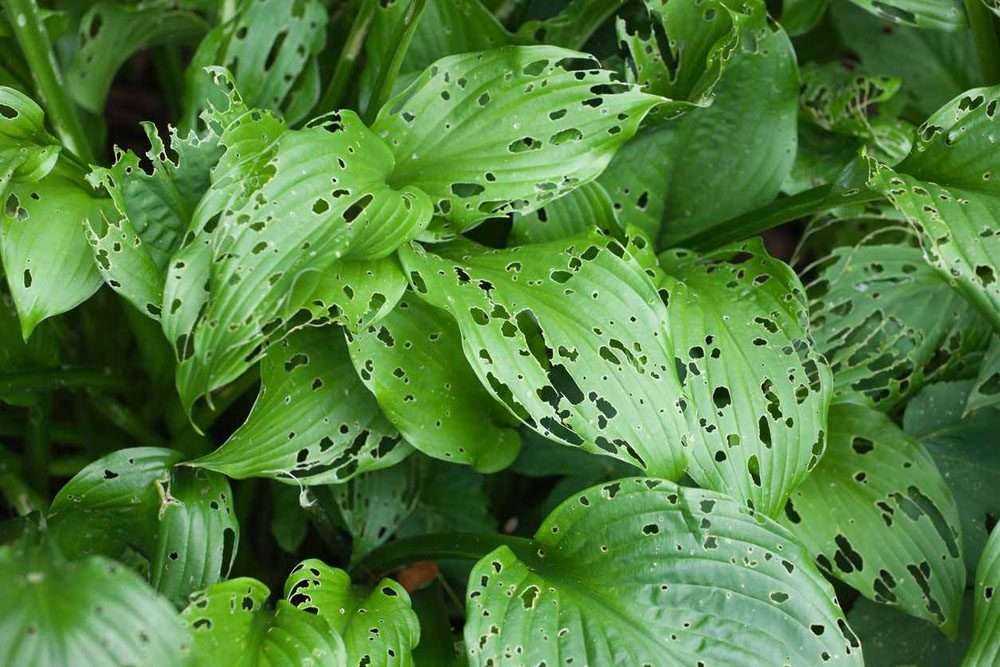As we near the end of winter, you may be starting to plan your spring garden or landscaping. But with gardening, come unwanted pests in the form of insects and larvae. In this article, we’ll cover the most destructive garden pests and ways you can help deter them.
Destructive Garden Pests in the Pacific Northwest
Aphids
Aphids are attracted to a variety of fruits, vegetables, flowers, and trees. They suck the sap from plants, causing them to become wilted. The honeydew these pests leave behind can also harbor fungal diseases including Powdery Mildew and Black Sooty Mold. Honeydew will also attract ants because they’re very fond of honeydew.
Caterpillars
Most people can easily identify a caterpillar — they’re the larvae of butterflies. But most people don’t know that these pests can be quite destructive to garden plants. Caterpillars will munch on leaves many times their weight, leaving holes where they’ve been.
Cutworms
Cutworms look very similar to caterpillars and are the larvae of moths. These pests are most active at night and commonly found on flower and vegetable seedlings. They will devour your plants by chewing through the stems at the soil level.
Flea Beetles
Flea beetles are tiny insects that jump when disturbed. These pests are commonly found on corn, lettuce, cabbage potatoes, beans, eggplant, peppers, tomatoes, and nearly any seedling. Flea beetles will leave behind small holes in plant leaves — which is especially harmful to young plants.
Colorado Potato Beetles
Colorado Potato Beetles are unique looking with a yellow-orange body and black stripes. These insects overwinter in soil or garden debris and resurface in the spring where they will then feast on the leaves of petunias, cherry tomatoes, eggplants, and potatoes. This can cause the plants to experience stunted growth or cause them to die.
Tarnished Plant Bug
Like Colorado Plant Beetles, Tarnished Plant Bugs will also overwinter and emerge in the spring. They will attack the buds of premature vegetables, fruits, and flowers. These insects will suck the juice from your plants, leading to wilted plants or death.
Scales
These tiny insects are flat and oval-shaped. They will suck the juices from plants causing the plant leaves to turn yellow or even cause it to die. Scales are not only difficult to identify but they are also hard to eliminate because they have a waxy covering on them that shields them from insecticides.
Controlling Garden Pests
Now that you’re more aware of the pests that can damage your garden, it’s important to know how to keep them away. Try some of the methods below to help keep invaders out of your garden.
- Install barriers: wrap cardboard around the base of your plant and apply a lightweight row cover to help protect the tops of plants
- Keep plants healthy: like people, plants also have an immune system. When plants are healthy and thriving they will become less attractive to garden pests. A strong immune system will also help plants fight off diseases caused by pests.
- Keep insect-repelling plants: some plants and herbs can help ward off certain insects. Try planting basil to help repel flies and mosquitoes, and garlic and petunias to help deter aphids. Other common insect-repelling plants include bay leaves, rosemary, lavender, and oregano.
- Practice crop rotation: not only does crop rotation help prevent soil erosion but it can also help in the battle against garden pests.
Gardens can also create a robust environment for other insects and rodents like mice, rats, ants, wasps, earwigs, boxelder bugs and more. When planning, you’ll want to be sure to keep your garden and other landscaping away from your home. Pests will use vegetation as harborage as they look for ways to get into your home through cracks and holes. Call PURCOR today if you need professional help to keep destructive pests out of your garden!
"*" indicates required fields
"*" indicates required fields




